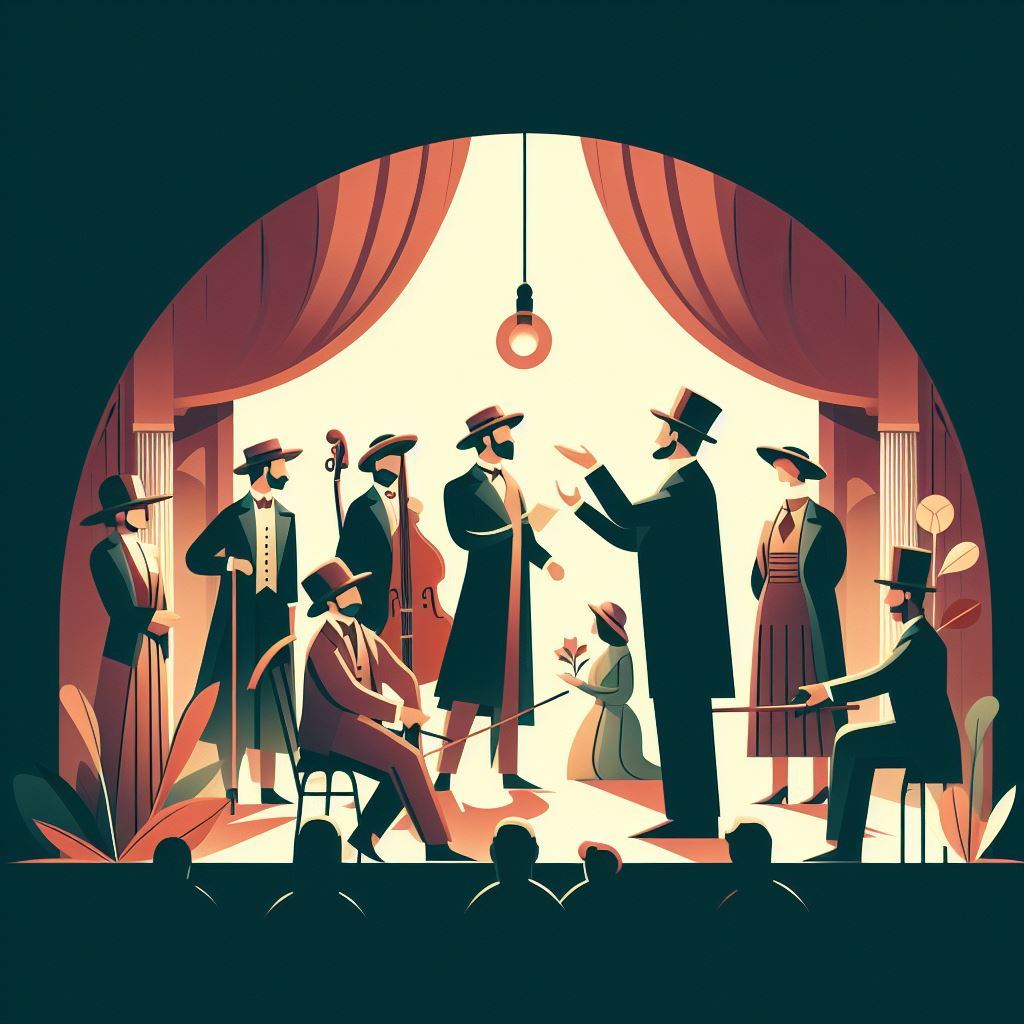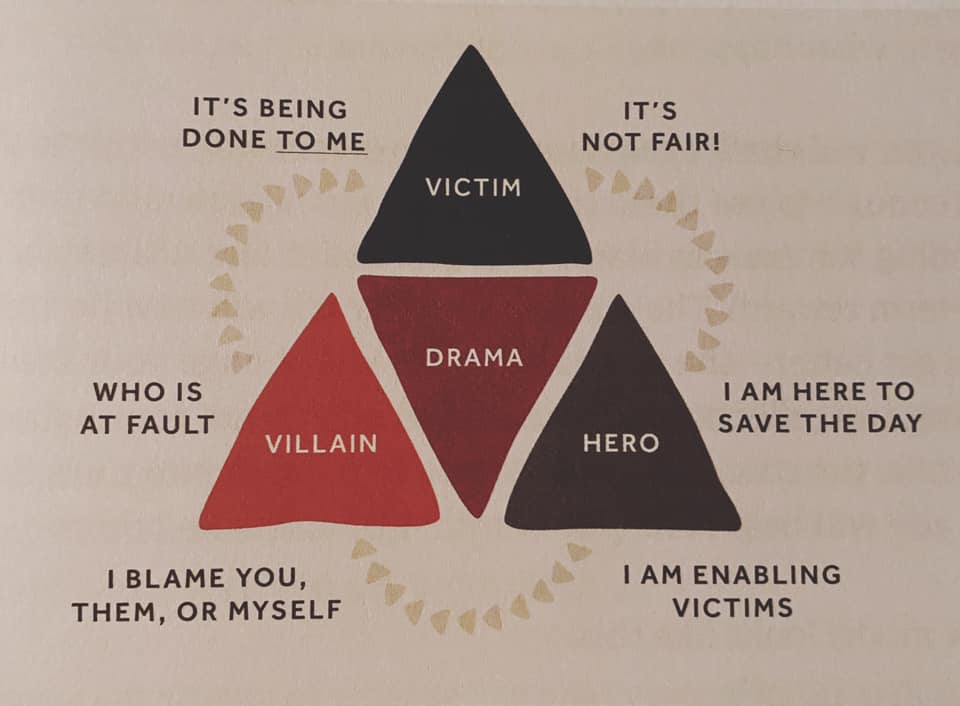
The “Drama Triangle” is a great framework for analyzing how drama unfolds in our lives. People tend to fall into certain roles such as “victim,” “rescuer,” and “persecutor.” Which role do you usually play?
Often in life, we find ourselves taking up certain social “roles” that become a deep part of our identity and how we see ourselves. These “roles” then play a major influence on how we choose to act in the future.
Most people play multiple roles in their lives depending on the situation and context. You’re going to act differently and take on different responsibilities when you see yourself as a “parent,” rather than a “coworker,” or a “friend,” or a “lover.”
Psychologist Eric Berne developed a way to analyze social interactions through a field called transactional analysis, where he views humans as playing different “roles” in different psychological “games” where people act in unhealthy ways to achieve certain social benefits or ulterior motives.
(You can find a description of some of these psychological “games” in this article I wrote, which is based on the classic book Games People Play.)
One of the models developed in this field of psychology is known as the “Drama Triangle.” In this model, there are 3 different roles people tend to fall into during dramatic and emotional situations:
- Victim (“Poor me!”) – The “Victim” acts completely helpless and frequently seeks to find situations where they they are being victimized and oppressed. They often fall easily to any potential “Persecutor” and then search for a “Rescuer” to give them attention and help them solve their problems.
- Rescuer (“Poor you? Let me help!”) – The “Rescuer” acts like a benevolent savior and frequently seeks to find situations where they can jump in and help someone. They often search for potential “Victims” in any situation, but end up making the “Victim” dependent on them to take care of.
- Persecutor (“It’s all your fault!”) – The “Persecutor” acts like a bully and frequently mistreats people because they feel they deserve it. They are good at finding people who want to play the “Victim” role and taking advantage of their self-perceived weakness.
Much of the drama we encounter in our lives follows this model in one way or another. You can probably recognize this pattern in some of your own relationships.
The thing to pay attention to the most is how all of these roles feed into one another. The “Persecutor” (who feels the need to prey on someone), is always looking for a “Victim” (who feels helpless and blameless), and thus searches for a “Rescuer” (who feels the need to save someone).
What role in the “Drama Triangle” do you tend to fall into the most – do you often see yourself as a victim, a rescuer, or a persecutor?
When it comes to creating drama, we often find ourselves playing the same type of role in multiple situations. For example, we all know someone who seems to always play the “Victim” in every situation, and someone who always needs to step in as the “Rescuer,” and someone who always needs to instigate and play the “Persecutor.”
In any long-lasting drama in our personal lives, we often need to recognize this self-fulfilling cycle and find a way to break out of it. This means being more aware of when we are stepping into our “roles,” and learning how to change our typical pattern of responses.

Breaking the Drama Triangle
Claude Steiner
All it takes is one person in the “Drama Triangle” to break out of their role and stop the cycle. Here’s how to break each role and how you need to begin changing your attitude and approach to the drama in your life, depending on what role you typically play.
- Breaking “Victim Mentality” – The victim must learn to take more responsibility for the situations they get themselves into and gain more confidence that they can overcome problems on their own. One warning sign to look out for if you’re in a victim mentality is if you talk about your problems too much, as this is often a symptom of focusing too much on all the things going wrong in your life and searching for others to step in and save you.
- Breaking “Rescuer Mentality” – The rescuer must accept that they have limited power and control over changing people and helping others. Remember, no one can save everyone. The rescuer must learn to give people more space to solve their own problems, and not create feelings of dependency in others. Keep in mind that there are wrong ways to help people. And instead of always taking care of others, focus more on taking care of yourself.
- Breaking “Persecutor Mentality” – The persecutor must learn to be more empathetic and sympathetic to vulnerable people. Instead of preying and bullying on people they perceive as “weak,” they should take a step back, put themselves in the other person’s shoes, and be more aware of the ways they are hurting people. Take active steps to be more kind to others and understand this will likely improve your relationships and happiness overall.
It’s not always easy to break out of these perceived “roles,” especially if we’ve been stuck in them for a long period of time (or our entire lives).
However, by first being more aware of these “roles” and how they play themselves out in our daily lives, we can begin to stop our normal patterns of behavior and change our attitude and approach to these dramatic and emotional situations.
Of course, sometimes it is completely appropriate to feel like a genuine “victim” or act like a genuine “rescuer.” The point of the “Drama Triangle” isn’t to say that people are never victims or that people don’t deserve to be helped.
The key thing to understand is how these perceived roles can instigate and escalate the drama in our lives, especially when we identify with a role so strongly that we must always see ourselves as a victim, rescuer, or a persecutor no matter what the situation is.
In many ways when we are stuck in these “roles” we become more like movie actors following a script rather than human beings with choice and free will. And interestingly enough, authors and filmmakers have been known to use the framework of the “Drama Triangle” to help create characters and orchestrate drama in their fictional works.
Overall, the “Drama Triangle” is a great way to analyze interpersonal conflicts and begin to minimize unnecessary drama in your life. I try to keep it in mind whenever I see drama going on, and I try to identify who is falling into what roles (including myself).
Enter your email to stay updated on new articles in self improvement:
